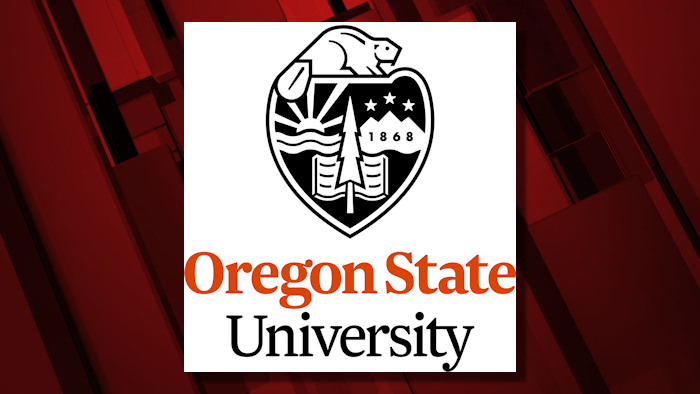OSU freezes tuition for returning undergraduate students

CORVALLIS, Ore. (KTVZ) – In response to the impacts of the COVID-19 pandemic on Oregon State University students and their families, the university’s Board of Trustees voted Friday to freeze tuition rates for currently enrolled undergraduate students at OSU’s Corvallis and Bend campuses for summer session and the 2020-21 academic year.
OSU will review the changing circumstances of COVID-19 and the university’s financial outlook over the coming weeks so the Board of Trustees can consider at its May 26 meeting whether OSU can provide tuition relief to new students enrolling at the university this fall.
“It’s essential that Oregon State University financially assist current students in their progress to graduation, while taking note of the unprecedented impacts, uncertainty and financial insecurity resulting from COVID-19,” said OSU President Ed Ray.
“By freezing tuition rates for one year for continuing undergraduate students, OSU is saying we not only understand these challenges, but we are offering a commitment that we will help students affordably complete their education.
“Even during a time of uncertainty, an OSU education and diploma remains a great value for all students, and a pathway to success in life, career and community.”
The board approved the following tuition rates for the 2020-21 academic year:
- A tuition increase of 3.2% for new undergraduate students at the Corvallis campus.
- At OSU-Cascades in Bend, the board voted to raise tuition 4.72% for new students who are Oregon residents and 3.2% for students who are not Oregon residents. The OSU-Cascades resident tuition increase is higher to close the gap with tuition rates in Corvallis.
- Tuition rates will increase 2.5% for graduate students who are Oregon residents and 4.5% for non-Oregon resident graduate students. Tuition for students enrolled in OSU’s professional pharmacy program will increase 3% for resident students and be frozen for non-resident students; 4% for professional students enrolled in veterinary medicine; and 2.5% in a master’s of business program offered by the College of Business.
- For Ecampus, Oregon State’s top-ranked online education program, undergraduate tuition rates will rise 3%, while online graduate tuition rates will not increase.
- Mandatory student fees for health services will increase 10.2% to provide for more access to counseling services for students on OSU’s Corvallis campus and will be frozen at OSU-Cascades.
- Student incidental fees, as recommended by student fees committees, will increase 7.4% in Corvallis and 12.4% at OSU-Cascades.
The Board of Trustees also approved recommendations from student leaders at OSU’s Corvallis and OSU-Cascades’ campuses to reduce student incidental fees for spring term 2020. Student leaders testified that over the past few weeks, leaders of student-fee funded units and organizations supported by student fees agreed to reduce fees in response to COVID-19 and OSU students’ taking courses this term remotely, some while living in their home communities.
Incidental fees in Corvallis will drop 11.33% in spring term, from $398.44 for a full-time student to $353.30, and by 58.42% at OSU-Cascades from $267 to $111.
During the audio-only web conference meeting required by COVID-19 stay-home orders and social distancing measures, OSU Provost and Executive Vice President Edward Feser and other university leaders, shared the university response and widespread efforts to provide for remote teaching, learning and working.
“This week, 1,300 OSU faculty and hundreds of graduate teaching assistants launched 3,995 remotely-delivered courses and sections, and hundreds of more remotely delivered independent studies and other sessions,” Feser said. “At top volume one day this week, remote instruction resulted in 1.5 million minutes of instruction. Instruction was provided to a variety of class sizes, including one class section with 573 students participating remotely at one time.”
Meanwhile, other OSU operations, research and service delivery of community programs, such as OSU Extension, are being provided by OSU employees working remotely observing OSU’s social distancing policy to help reduce the risk and spread of COVID-19, Feser said.
In response to the impacts of COVID-19, Ray said that OSU is taking steps to respond to the pandemic’s educational and operational impacts on the university while actively evaluating steps to mitigate significant financial impacts.
“Already this year, we froze compensation for the university’s president, provost, vice presidents, vice provosts and other senior administrative leaders,” Ray said. “In the weeks ahead, the university will evaluate fully and announce implementation of other specific measures that will rein in expenses and reduce administrative costs.”
The board unanimously voted to establish an OSU police department within the university’s Department of Public Safety on the Corvallis campus. Oregon State currently contracts with the Oregon State Police for law enforcement services. That agreement will end June 30, 2020.
The decision to establish a police department on the Corvallis campus was informed by four community listening sessions in March and from work by the university’s Public Safety Advisory Committee, which was convened by OSU President Ed Ray. Future community input sessions are planned in April to gather additional student and community input.
The Corvallis campus will transition to establishing its own police department by July 1, 2020. The university immediately will begin the process to recruit, hire, train and equip licensed law enforcement employees to field a well-trained, professional public safety department with licensed police officers.
The board’s approval puts the law enforcement of the Corvallis campus in line with the University of Oregon, Portland State University and all Pac-12 conference members, which each operate their own police departments.
The board also approved the university’s three capital requests to the Higher Education Coordinating Commission for the 2021-23 legislative biennium:
- Phase one of a new Collaborative Innovation Complex that will bring together multidisciplinary research teams to make scientific breakthroughs and translate them into innovations to address world problems in areas such as data science, engineering, materials science, artificial intelligence, and marine and health sciences.
- Phase three renovations to Cordley Hall to renovate research laboratories, teaching facilities and offices in the 130,000-square-foot east side of Cordley Hall.
- Completing Reser Stadium.
The three capital projects total a cost of $353 million, and would be funded by $55 million in OSU bonds; $235 million in philanthropy and other funds, such as ticket and sponsorship revenue; and $63 million in state bonding to be requested for legislative approval.
The board heard a report on the presidential transition from Ed Ray to F. King Alexander, who begins his service as OSU’s president on July 1. Ray has served as Oregon State’s president since 2003. Alexander joins Oregon State having served as president at Louisiana State University since July 2013.
The board also heard an update on the Oregon legislative session in February and March, and the prospects for a legislative session in the weeks ahead. OSU has a number of matters of legislative interest remaining unsettled from the short legislative session that concluded in March. Items include $34.5 million in bonding for an Arts and Education Complex on the Corvallis campus and $12.9 million in funding for an OSU-Cascades Student Success Center. OSU also seeks $870,000 for continued ocean acidification and hypoxia research, two climate change-induced conditions that could have widespread consequences for the state’s ocean ecosystem and the economy.
The board held an executive session in accordance with state public meeting laws to conduct deliberations with university leaders designated by OSU’s president to carry on labor negotiations on behalf of the university.
In other actions, the board:
- Approved a proposal to reorganize the College of Business into three schools: Accounting, Finance, and Information Systems; Management, Entrepreneurship, and Supply Chain; and Marketing, Analytics, and Design. The new college structure reduces faculty-to-supervisor ratios, allows for more career planning, goal setting and mentoring; and increases opportunities for faculty collaboration across related disciplines.
- Approved a plan from OSU’s College of Education focused on increasing and retaining the diversity of the teacher candidates through recruitment and retention efforts. The Higher Education Coordinating Commission reviews and approves these plans, which are required of Oregon public universities that offer teacher education programs.
- Approved the renewal of OSU’s $50 million short-term financing vehicle, adding new options for the university. This allows, for example, the university to make a quick purchase and later essentially reimburse itself through bonds.
- Approved an Office of Audit, Risk and Compliance progress report. The report outlines recent audit reports and the risks they present to the university.
The board’s Finance and Administration Committee also met Friday. The committee approved two building projects to enter the design development phase. Design development includes completion of project drawings and possible minor work, such as utility improvements, demolition work and site preparation.
The projects include:
- A $70 million Arts and Education Complex on the Corvallis campus that will provide academic and educational space for performing arts classes, programs and performances.
- A $10 million Newport student housing project, which will involve construction of multi-family style housing to serve OSU students enrolled in marine studies at the Hatfield Marine Science Center in Newport. The project will include approximately 120 beds, community areas, administration space and site manager living quarters.
The board heard testimony from 10 people who urged the university to serve its faculty and graduate teaching and research assistants by concluding collective bargaining negotiations with unions representing faculty and graduate assistants.



